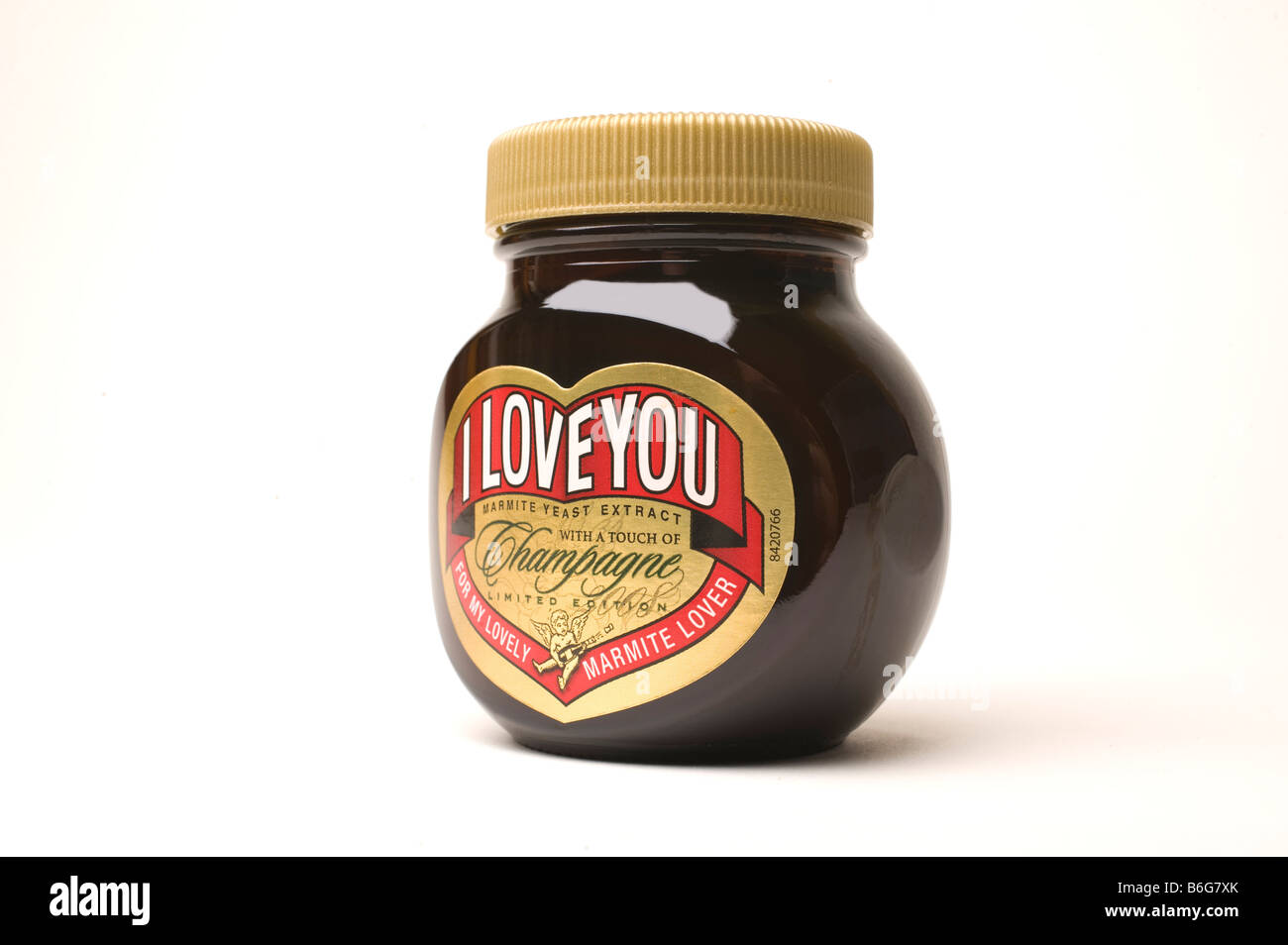Limited Edition Marmite with a touch of Champagne jar on white background (Not Cut Out)

Image details
Contributor:
Alan Mather / Alamy Stock PhotoImage ID:
B6G7XKFile size:
71.9 MB (1.4 MB Compressed download)Releases:
Model - no | Property - noDo I need a release?Dimensions:
6144 x 4088 px | 52 x 34.6 cm | 20.5 x 13.6 inches | 300dpiDate taken:
2008More information:
The Marmite Food Extract Company was formed in Burton upon Trent, Staffordshire, England, in 1902, with Marmite as its main product, and Burton as the site of the first factory. The by-product yeast needed for the paste came from the biggest brewer at the time, Bass Brewery. By 1907, the product had become successful enough to warrant construction of a second factory at Camberwell Green in London. Initially, Marmite was popular with vegetarians as a meat-free alternative to beef extract products such as Bovril, which were popular in the late 19th and early 20th century. Today, the main ingredients of Marmite manufactured in the UK are glutamic acid-rich yeast extract, with lesser quantities of sodium chloride (table salt), vegetable extract, niacin, thiamine, spice extracts, riboflavin, folic acid, and celery extracts, although the precise composition is a trade secret. By 1912, the discovery of vitamins was a boost for Marmite, as the spread is a rich source of the vitamin B complex; vitamin B12 is not naturally found in yeast extract, but is added to Marmite during manufacture. With the vitamin B1 deficiency beri-beri being common during the First World War, the spread became more popular